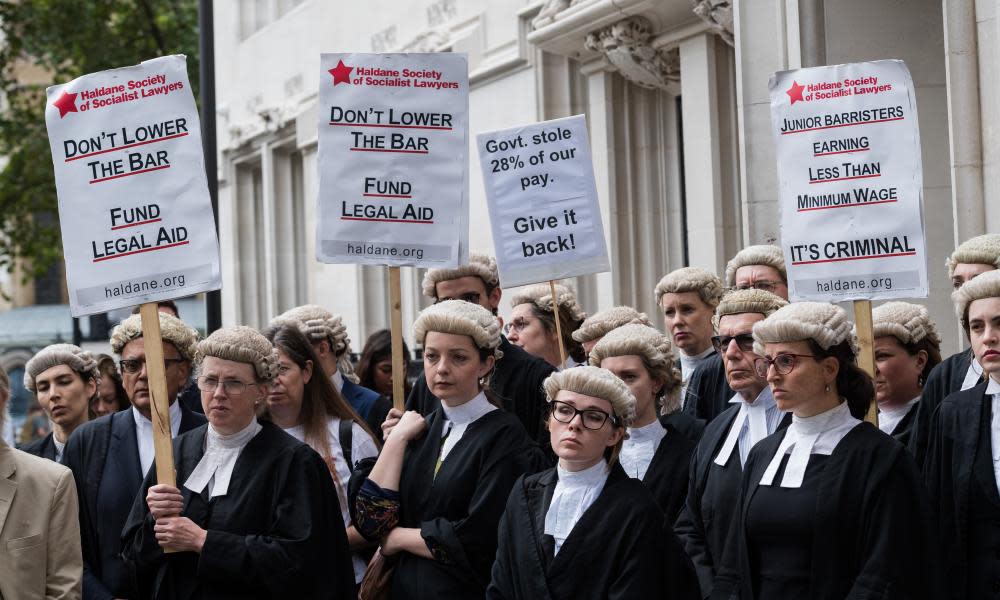Judges wrong to state views about barristers’ strike, high court told

Judges acted wrongly when expressing views on the criminal barristers’ strike as they refused to keep defendants behind bars in cases delayed by the ongoing pay dispute, the high court has heard.
The director of public prosecutions (DPP) is challenging the legitimacy of decisions taken by judges at Bristol and Manchester crown courts not to extend the period that three men in two cases could be held on remand beyond the six-month limit.
In written submissions to a judicial review hearing in London on Monday, Tom Little KC, representing the head of the Crown Prosecution Service, told the high court the decisions taken in the relevant cases should be quashed and substituted by extensions.
“It is submitted that the judges in both cases appeared to take a clear position on the dispute [between criminal barristers and the government], and that to do so was both wrong in principle and unnecessary to their decisions whether the custody time limits should be extended,” said Little.
He argued that in both cases judges failed to have regard to the circumstances of the particular case before them and, in the Bristol case, judge Peter Blair KC’s comments “appear to assign responsibility for the strikes to the government, and to express a view that they should be resolved by an increase in legal aid rates”.
There have been an increasing number of refusals to extend custody time limits (CTLs) since members of the Criminal Bar Association began an indefinite strike over legal aid fees on 5 September, including with respect to four people accused of murder at Bristol crown court last week. Little expressed hope that the high court’s decision would provide “clarity and consistency to decision-making”.
Barristers for the respondents countered that the respective judges had broached the effects rather than the merits of the action by the Criminal Bar Association.
In written submissions, Ben Knight, on behalf of one of two men accused of violent offences bailed at Manchester crown court, said: “If a judge seeks to scrutinise any practical cause for a trial not being able to take place, and that reason involves a question of resourcing of the CJS [criminal justice system] in any way (including advocates), then it becomes ‘political’ territory, as the claimant would have it. That contention amounts to a usurping of power from the independent judiciary into the hands of the director of public prosecutions and it is, of itself, an overtly political act.”
Knight said comments by Landale that the action was “predictable” and that the government could have resolved it were “simply a matter of fact”. He added: “There was and still has been no indication that the government is meaningfully engaging with the CBA or its members. Indeed, the government has been in disarray since the collapse of the [Boris] Johnson administration.”
David Hughes, representing the Bristol defendant, said Blair had said “nothing that was wrong, improper or incorrect”.
The respondents claim there is no power to extend expired CTLs and, even if there was, its use in the cases under scrutiny would be unjust.
The judges said they hoped to reach a decision within days.

 Yahoo Movies
Yahoo Movies 
